Ian Gillan on Deep Purple’s Machine Head
The SDE interview
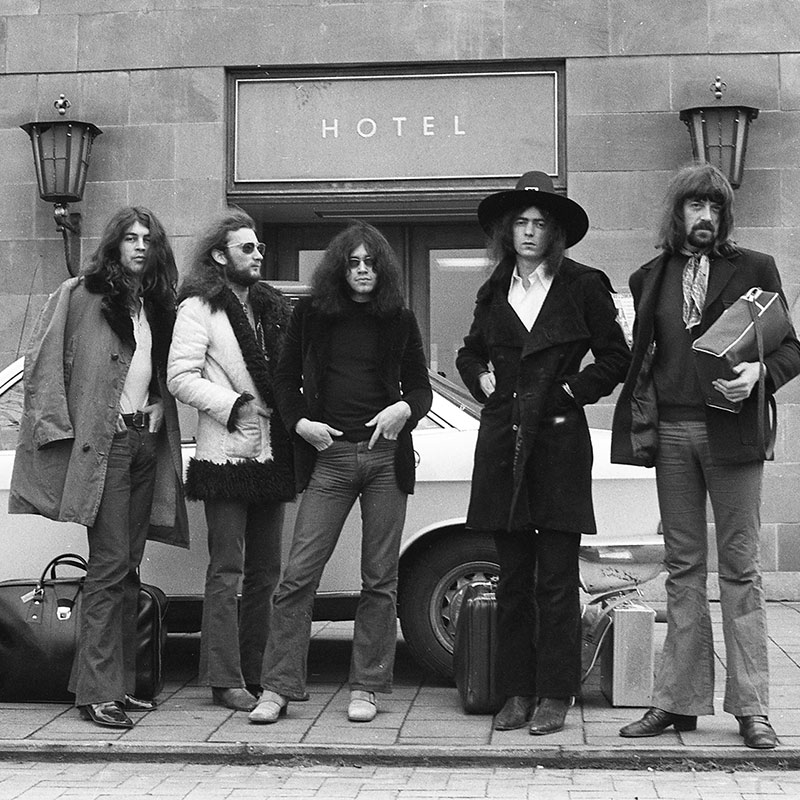
Machine Head by Deep Purple is one of the classic heavy rock albums of the ‘70s and it features ‘Smoke on the Water’, which has arguably the most famous and recognisable guitar riff of all time. Several other songs on the record, including ‘Highway Star’, ‘Pictures of Home’ and ‘Lazy’, are still played in the band’s current live set.
Released in 1972, Machine Head was the group’s sixth studio album, their most commercially successful, and the third with the celebrated MK II Deep Purple line-up of Ian Gillan (vocals), Roger Glover (bass), Ian Paice (drums) Jon Lord (keyboards) and Ritchie Blackmore (guitar).
It was to be recorded in December 1971, at the Montreux Casino in Switzerland, but the venue burnt to the ground when someone in the audience at a Frank Zappa and the Mothers of Invention gig fired a flare gun – the event is documented in the lyrics to ‘Smoke on the Water.’
After moving to a nearby theatre to make the album, the band had to abandon that plan due to complaints about the noise. They then relocated to the empty Grand Hotel, which was closed for the winter, and recorded their songs there with engineer Martin Birch, using the Rolling Stones mobile recording studio.
Machine Head has been reissued many times and this month sees yet another version coming out – a 3CD+Blu-ray+LP super deluxe edition.
Dweezil Zappa has remixed the album in stereo and in Dolby Atmos, and in the CD set there are two live performances included – the first, recorded on 9 March 1972 at the Paris Theatre in London, captures the group on their Machine Head tour, while the second is previously unreleased; it was recorded at April 1971 at the Montreux Casino – the same venue that burnt down only a few months later.
SDE spoke to frontman Ian Gillan, who along with Roger Glover and Ian Paice, still performs in the band’s current line-up – the other members are Don Airey (keyboards) and Simon McBride (guitar) – about the new edition of the album, the making of Machine Head, and whether he’s tempted to join in when he hears someone playing the riff to ‘Smoke on the Water’ in a music shop…
SDE: Machine Head came out more than 50 years ago – 52 years, in fact. You recorded it in December 1971 in Montreux, and it was released the year after. How does it feel to be celebrating it with another reissue after all this time?
Ian Gillan: It’s really weird, because we still play these songs every night – not all of them obviously, as there are new songs involved, but ‘Smoke on the Water’, ‘Highway Star’, ‘Pictures of Home’ and ‘Lazy’ are still in the act. It feels like yesterday.
Have you been closely involved with the reissue and the remastering?
No – alongside it, we’ve been making a new Deep Purple record, so we were fairly remote. I think that’s a good thing because when we heard the first Dweezil Zappa mix, Roger and I were in Portugal at my studio – we were working on something else – and we went ‘What?’ And then we thought, ‘Hold on a moment – don’t compare it with the original…’
It is what it is, and we’ve got to listen to it for what it is and not compare it – it’s all different. I’ve seen the [new] video for ‘Smoke On The Water’, and it’s pretty good, so I’m looking at it from a fan’s point of view, rather than being in the band.
Do you like what it’s now possible to achieve with the latest studio technology, or do you not like messing with the past?
I don’t think it’s good or bad – you’ve got to take it for what it is. You can’t live in the past. Who’d have ever thought that Jane Austen, Dickens and Shakespeare would’ve have been made into movies one day? I think it’s fair game and it’s exciting, and the material’s good enough to justify it – it’s survived all these years. It’s quite a nice feeling – I love it.
What do you think the new mix has brought to the songs?
Probably a fresh approach – technology has changed, the thinking is different now and so is the balancing of instruments. It’s a whole different process – around about 1982, when digital came in, it was absolutely shocking. I can tell you that when I heard Machine Head on CD for the first time, I nearly wept – it was so awful and so flat.
At that time, everyone was saying that vinyl sounded 10 times better than digital, and, of course, they were right, but the reason for that was because the engineers hadn’t caught up with the technology – they hadn’t trained themselves how to work it and make it sound good. It’s a completely different story today.
The new 3CD set features some live performances, including the April 1971 concert from Montreux Casino. Can you remember that gig?
Vaguely – I was drunk most of the time. Let’s say, we were having a good time – it was all part of the music. We hadn’t developed to that super-professional level at that time. We were professionals, don’t get me wrong, but we were still enjoying it probably a little too much.
There’s also a 1972 concert from the Paris Theatre in London included. Any memories of that show?
As far as I recall, it might have been the Paris Theatre or the Lyceum, so, forgive me if I’m getting them muddled up… Audiences have become quite sophisticated now – if there’s a behavioural pattern at large concerts, they all know what to do – how to respond, and when to get involved or when not to. But it was all quite new back then – and audiences weren’t as raving as they are now. They were more circumspect, but in the clubs and the small venues they were more into it, and we knew all the faces – they weren’t massive crowds. But I do remember, whether it was the Paris Theatre or not, that we were going to do a blues song – I can’t remember which one – and I said: “Why don’t you sit down and take the weight off? Lean back and enjoy it.”
Then we got back into doing the rock thing and they all stood up again. A few weeks later, we were playing the Paradiso in Amsterdam, and I did the same thing – I said: “Why don’t you sit down and enjoy yourselves?” So, they all did, but they didn’t get back up again. If you know anything about the Paradiso, then you’ll know why…
Machine Head was the third album with the Mark II Deep Purple line-up, and it was the band’s most commercially successful album – it went to number one in the UK and several other countries and made it into the Top 10 in the US. It’s arguably seen as your classic album, but where does it sit in your list of favourite Deep Purple records?
I think it’s great – we avoided the [difficult] second album syndrome successfully, but not entirely, with an album called Fireball that went before it.
You had Deep Purple in Rock, then Fireball and Machine Head, which I think was an amalgam of the two – so, we finally found our feet. We had to do Fireball because of the funky element of the band – it wasn’t all hard rock, it was funky and, with Jon Lord there were elements of orchestral compositions, and there was blues and folk – everything was in there. There was also big band swing with Ian Paice.
Machine Head was very special. I can remember doing some preparation for some of the songs beforehand and I had a feeling that we were putting something really good together. I was round at Ritchie’s flat, and we were writing ‘Pictures of Home’ – not the lyrics, they came in Switzerland. It was the riff against the rhythm, and it was a little moment of magic. I’d been ill – I was just getting back on my feet…
You had hepatitis, didn’t you?
Yes – I had it pretty badly and jaundice too. I was off for three months. Everyone had hepatitis in New York – in the early days, you weren’t allowed to have alcohol on stage in the clubs up north. We used to knock the top off a bottle of a Coke and fill it up with whiskey, but it looked like Coke, so you got away with it.
Scotch and Coke became the drink of the musicians. In New York, you didn’t know whose drink belonged to who – hepatitis was rife, and there are other ways of catching it too, of course… Anyway, I had it pretty badly, but with Machine Head, everything just came together – serendipity is the word, I think.
We were also very spontaneous in those days – if an idea came to us, we’d write it in seconds. ‘Child In Time’ [from Deep Purple in Rock] was written in 20 minutes. It was started at the Hanwell Community Centre where we used to rehearse, opposite Jim Marshall’s shop – we walked in and there was a piano in the entrance. I think it was used for school dances and goodness knows what – Jon was playing these chords and it was a slowed-down version of a song called ‘Bombay Calling’ by It’s A Beautiful Day. He said: “These chords are fantastic – aren’t they lovely?”
I started singing at the piano – everyone came out of the pub, we went into the main room, plugged in and started playing this thing, and it was all done in 20 minutes. I think we then did it on stage.
When you’d finished recording Machine Head, did you know you’d made something special?
No – we didn’t. We just couldn’t wait to get back on the road – we’d look on an album as the thing that gave us new material. That was why we recorded albums – we had no idea of commerciality. In fact, there’s a great story connected to that – there’s a song on the record called ‘Never Before’, but the joke in the band is ‘Never Again…’
We attempted to write a single – to tailor something for the radio – but that wasn’t in our way of thinking at all. Our principle was ‘ignore the fans, ignore the business, ignore the managers, ignore the record company and ignore everyone’ when we were writing. We didn’t want to be fashionable – we just wanted to get the best out of ourselves, and then when we’d finished it, to get down on our knees and pray that they liked it.
‘Never Before’ wasn’t a big hit, was it?
We didn’t have a clue how to write commercial songs – they happen accidentally. If people like them, then they become commercial.
We had no idea about ‘Smoke on the Water’… for us, it was a great track to play live on stage. The first time we did it, it was in a soundcheck in the studio in Switzerland. Martin Birch had it on tape and he said we were seven minutes short of an album, so we resurrected it because we only had a day left. So, we said, “Let’s use this, but we’d better write some words to it.”
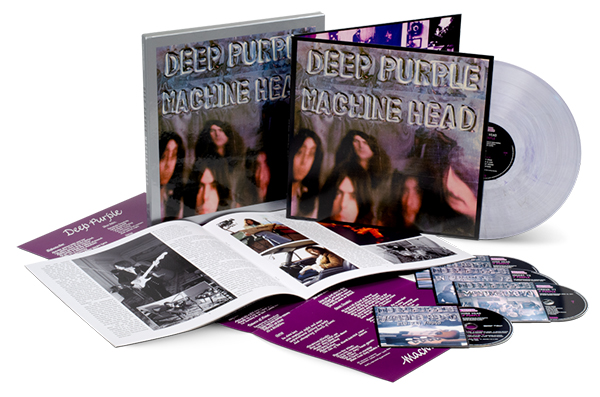
Is it true that Roger Glover first wrote the title ‘Smoke on the Water’ on a napkin?
As the casino burnt down… Well, he doesn’t remember it that way, but that’s the way I remember it. I think he coined the phrase and then the words had to be written – it was a biographical account of the making of the record.
In fact, it ended up being [almost] a seven-minute track on the album. It wasn’t until a guy called Russ Shaw from Warner Brothers came to see us at Anaheim or somewhere like that, and saw the reaction of the crowd to ‘Smoke on the Water…’ He looked at the album and said, “No wonder they don’t play it on the radio – it’s seven minutes long.” So, he went back and did an edit – three minutes 50 – and Bob’s your uncle. It then became quite well known…
Did it feel special when you’d recorded it?
It was one of my favourites. I love songs like that – simple, straight-ahead rock with a great backbeat. That’s my kind of rock. It almost demeans it by analysing it too much.
‘Smoke on the Water’ wasn’t released as a single until about a year after the album had come out, was it?
That was as a result of that guy from Warner Brothers. It’s the most played rock track in the history of rock music.
It’s arguably the most famous rock guitar riff of all time, isn’t it?
Yes.
Have you ever been in a music shop, heard someone play the riff when they’re trying out a guitar and been tempted to join in?
Not in a shop, but I hear people do it all the time. I was privileged to be at a little prize-giving charity event in Salcombe that was held by a dear friend of mine, David Cohen. There was a performance by a school band and I drove down from Bristol to present a prize. The band got up and they did ‘Smoke on the Water’ – people were asking me to get up and sing, so I did.
When I approached the stage, there was a lovely girl who was 14 years old maybe – she was singing it with the band. She saw this hairy guy get up on stage and she started moving away. I went across to join her and she protected the microphone, as if to say: “Who is this person who is trying to ruin my evening?” It was so funny, and, of course, I started singing with her and I didn’t realise she didn’t have a clue who I was. It was wonderful.
My favourite performance of ‘Smoke on the Water’ was with Stan Bowles [ex-Queens Park Rangers and England footballer] at a restaurant in Portugal.
You support QPR, don’t you?
I wouldn’t say I support them, but I follow them…
When you were recording Machine Head, did you set out to capture the live sound of the band? Was it a different approach to making Fireball?
Yes – definitely. We were progressing and we realised that we needed larger spaces to record in because we were amplified, and we played the drums loudly. Up until that time, the tradition was – and you heard it from the recording engineers – that you’d go into a studio and they would ignore the sound that you liked. They’d put blankets over everything, enclose everything and ask you to put pads on the drums to keep them quiet.
I remember a classic quote from an engineer. He said to me: “We have to break everything down to its absolute bare elements and then we rebuild the sound at the desk.”
The sound is bloody wonderful – why break it down and destroy it and then rebuild it into something that’s only a quarter as good?
So, that was the principle behind moving into larger spaces – to get the expansion and the volume of the amplifiers. Of course, it still had to be controlled – you needed separation – but that was a different issue. We started recording in barns and old ruined houses – anywhere that had a bit of atmosphere. It was just as good, and we realised that we didn’t have to be in a recording studio.
The mobile recording studio gave us the freedom to do that – you could properly record outside of a studio, so it was quite an event. We weren’t the first – there were two main mobile studios at the time and the Rolling Stones had one of them.
So, for Machine Head you used that one – it was moved from the South of France to Switzerland…
Correct.
Were you also recording in Switzerland for tax reasons?
No – I can assure you there were no tax reasons… The reason we went to Montreux was because Claude Nobs was there – he engineered everything, but he wasn’t the sound engineer or the electrical one. He loved the band and he was Mr Montreux – he ran the Montreux Jazz Festival and he organised the truck and everything else for us. There were no accountants involved – nice try.
You had some issues making Machine Head in Montreux – you were going to record it at the casino but it caught fire, so you moved to another venue, where you did ‘Smoke on the Water’, but you ended up recording the rest of the album at the empty Grand Hotel…
You probably know more about it than I do from all the accounts that have been written. Yes – that sounds pretty accurate. We used different rooms for different instruments to get the separation I was talking about earlier – it was so you didn’t get overlap on the tracks. Don’t forget, we were still on tape in those days, so we were limited to 24 tracks.
The drums needed eight tracks, so you couldn’t have overspill – guitar leaking on to a drum track – because if you bring one up, you bring both up.
So, we used bedrooms and mattresses… I was singing in the hallway and in-front of me was the staircase – we couldn’t get to the studio for the playbacks because it was so far. It was an adventure and there was a lot of creativity. Claude was a genius and a fabulous guy – so full of enthusiasm.
As well as writing the lyrics for ‘Smoke on the Water’ in Montreux, you also penned the words for ‘Pictures of Home’ there, didn’t you? They mention a mountain, eagles and snow…
Yeah – when you’re writing, you take what’s around you. If can have impressionism in lyrics, like you do in painting, then that’s an impressionist song.
Was Machine Head a quick album to make?
Yes – very quick. It was a necessity.
It must’ve been cold in Montreux – it was December when you were there…
It was cold, but the bars were open – we had coffee and whiskey and stuff like that… It wasn’t that bad.
How was Martin Birch to work with?
He was ahead of his time – he was a great engineer. He understood what we were trying to achieve and he was a great guy – we all loved him.
Was ‘Highway Star’ written as a song to start your live set with? You still play it now…
Yeah – it’s a classic opener. You’ve got your framework of songs – you can muck around with the middle – but that’s one of the foundations.
It’s a song about cars and girls, which are also two of the foundations of rock ‘n’ roll…
Exactly.
Didn’t you write ‘Maybe I’m A Leo’ about your star sign? You were born in August…
Yeah, but I didn’t know anything about astrology… Someone told me I was a Leo, and I said, “Maybe I am…”
You played harmonica on ‘Lazy’, didn’t you?
Yeah – I learnt very early in life that if you want to play the harmonica well, you really have to suck…
Do you still play it?
I do. I like playing the harmonica, but I don’t like to over-do it – it comes in as a refreshing little lift every now and again.
The lyrics to ‘Space Truckin’ have a ‘50s sci-fi-meets-rock-‘n’-roll feel. It’s become a big song for you, hasn’t it?
It really has. Kalpana Chawla was one of the astronauts on the Columbia shuttle that went down – ‘Space Truckin’ was her wake-up call. It was piped through from Houston to wake her up for her shift. We sent emails to each other via Houston, but it ended in tragedy.
The bluesy ballad, ‘When A Blind Man Cries’, which was recorded during the sessions for Machine Head, but isn’t on the album – it ended up as the B-side to ‘Never Before’ – is another one of your big songs, isn’t it? Do you regret not putting it on Machine Head?
I do, but somebody didn’t like it…
It sounds different from a lot of your other stuff…
It’s a nice message, it’s a blues… It tells the story of the little guy, or the guy who hasn’t got anything, or who is disabled, or can’t afford a meal or a roof over his head.
A blind man never complains but all those people who’ve got full pockets and full bellies seem to be bitching, moaning, whining, groaning and complaining all the time – you don’t hear a guy in a wheelchair complaining very often. When a blind man cries, he’s really got something to cry about…
You said earlier that you’re working on a new Deep Purple studio album…
It’s finished and it’s out in July. There’s not much I can tell you about it yet, but I’m thrilled to bits with it.
And you’re on tour this year, playing Australia in April, and then Asia, and Europe over the summer…
Once we kick off in Australia, I don’t get home until November – it’s an eight-month tour.
Do you still enjoy it?
I’m loving every minute.
What keeps you going?
I don’t know – I’ve never analysed it. I’m happy. Look, I’ll tell you something… This may not be very rock ‘n’ roll, but I remember my mum always trying to persuade my dad to get a job in an office – he worked in the stores at a factory and he used to get cash in a wage packet. She wanted him to get an office job, so he could get a salary – it was for social status.
He kept deferring it, but, in the end, he said: “Look, – if you work in an office, you take your work home and it’s there in your head all the time. If you work in a factory, you get your wage, walk out and leave everything behind – I play football Sunday mornings and I’m content.”
I remember him saying that and I think that’s probably one of the greatest achievements you can get in your life – to be content.
That doesn’t mean it’s not exciting, but to be content with what you’ve got is what I am.
Are you content being a QPR fan?
That’s a bit more troublesome…
Thanks to Ian Gillan, who was talking to Sean Hannam for SDE.
Machine Head is reissued today as a 3CD+Blu-ray+LP super deluxe edition via Warners in America and Universal in the rest of the World. You can watch the SDEtv unboxing video here.
Compare prices and pre-order

Deep Purple
Machine Head 3CD+blu-ray+LP super deluxe

|
|
||||||||||||||||||||||||||||||||||||||||||||||||
Tracklisting
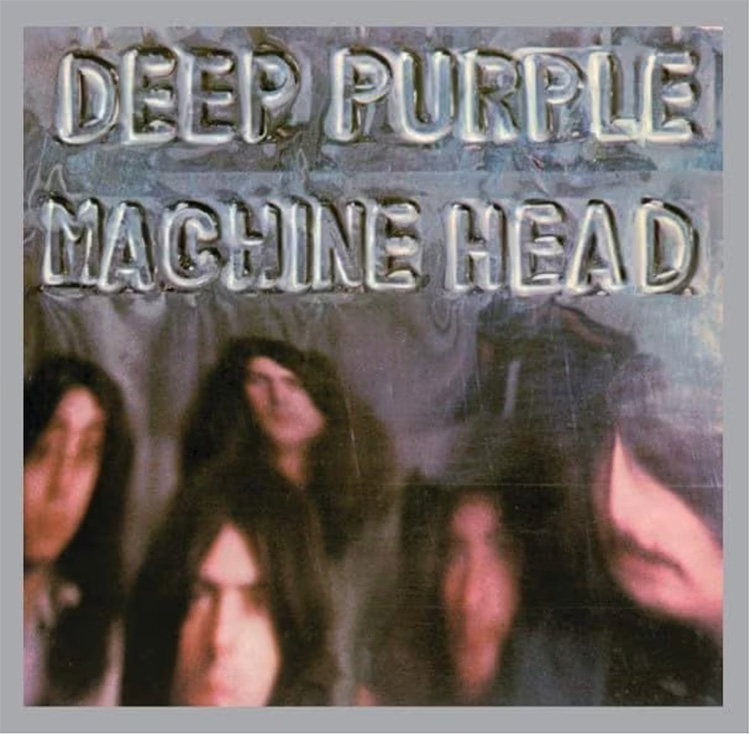
Machine Head Deep Purple / super deluxe edition
-
-
CD 1: Machine Head
Dweezil Zappa 2024 Remix
- “Highway Star”*
- “Maybe I’m A Leo”*
- “Pictures Of Home”*
- “Never Before”*
- “Smoke On The Water”*
- “Lazy”*
- “Space Truckin’”*
- “When A Blind Man Cries” – B-side*
2024 Remaster
- “Highway Star”
- “Maybe I’m A Leo”
- “Pictures Of Home”
- “Never Before”
- “Smoke On The Water”
- “Lazy”
- “Space Truckin’”
* previously unreleased
-
CD 2: In Concert ’72
- Introduction
- “Highway Star”
- “Strange Kind Of Woman”
- “Maybe I’m A Leo”
- “Smoke On The Water”
- “Never Before”
- “Lazy”
- “Space Truckin’”
- “Lucille”
- “Maybe I’m A Leo” – soundcheck
-
CD 3: Montreux ’71
- “Swiss Yodel” *
- “Speed King” *
- “Strange Kind Of Woman” *
- “Into The Fire” *
- “Child In Time” *
- “Paint It Black” *
- “Wring That Neck (Hard Road)” *
- “Black Night” *
- “Lucille” *
* previously unreleased
-
Blu-ray Audio
Dweezil Zappa 2024 Atmos Remix
- “Highway Star” *
- “Maybe I’m A Leo” *
- “Pictures Of Home” *
- “Never Before” *
- “Smoke On The Water” *
- “Lazy” *
- “Space Truckin’” *
- “When A Blind Man Cries” – B-side *
1974 U.S. Quad Mix
- “Highway Star”
- “Maybe I’m A Leo”
- “Pictures Of Home”
- “Never Before”
- “Smoke On The Water”
- “Lazy”
- “Space Truckin’”
Dolby 5.1 Surround Sound Mixes
- “When A Blind Man Cries” – B-side
- “Maybe I’m A Leo”
- “Lazy”
* previously unreleased
-
Vinyl LP
Side One
- “Highway Star”
- “Maybe I’m A Leo”
- “Pictures Of Home”
- “Never Before”
Side Two
- “Smoke On The Water”
- “Lazy”
- “When A Blind Man Cries” B-side
- “Space Truckin’”
-
CD 1: Machine Head

 Interview
Interview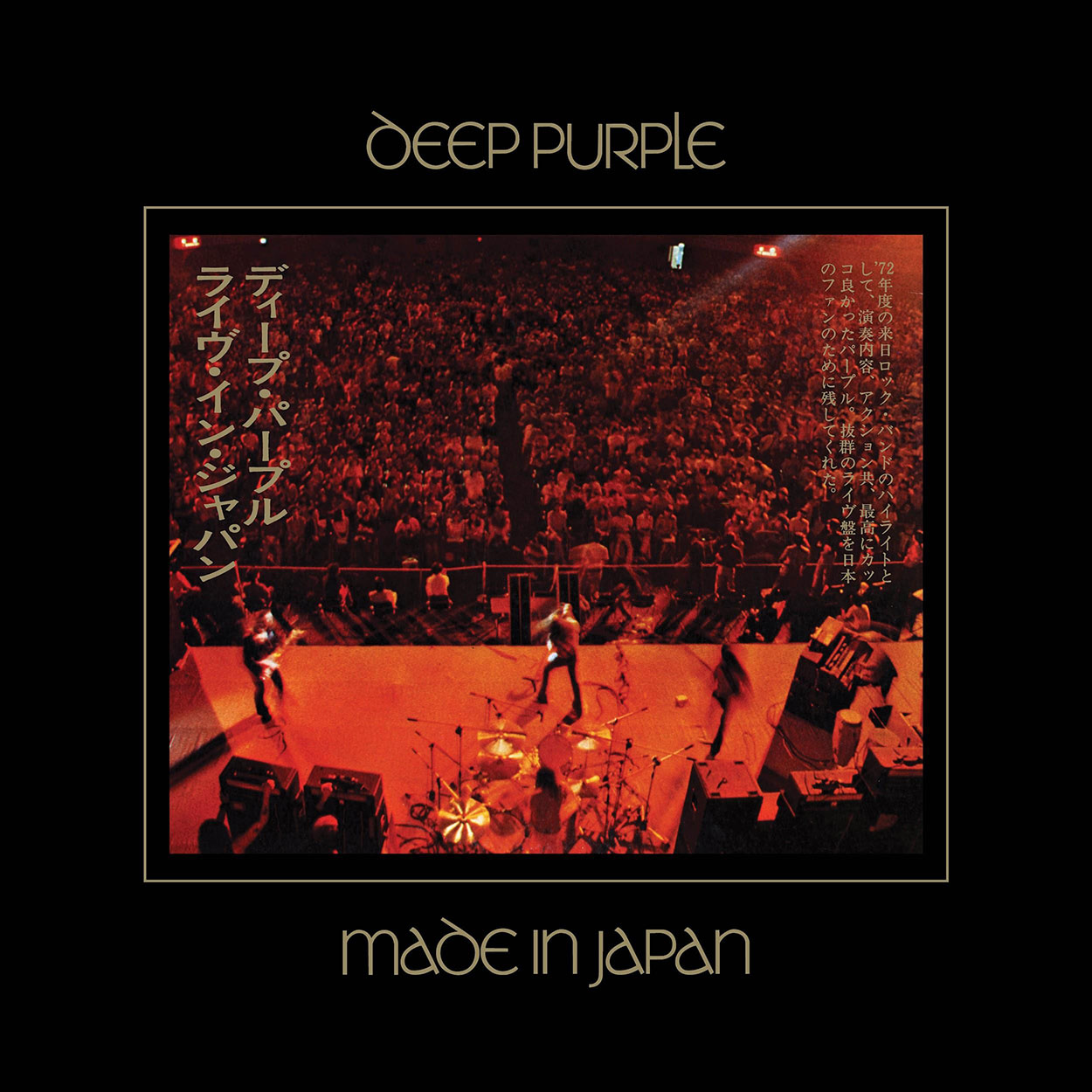

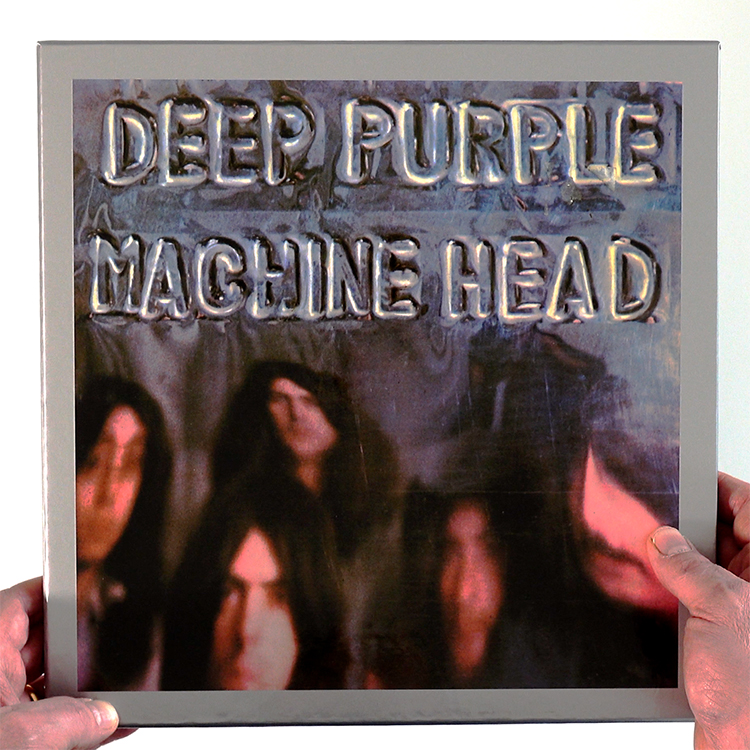
 SDEtv
SDEtv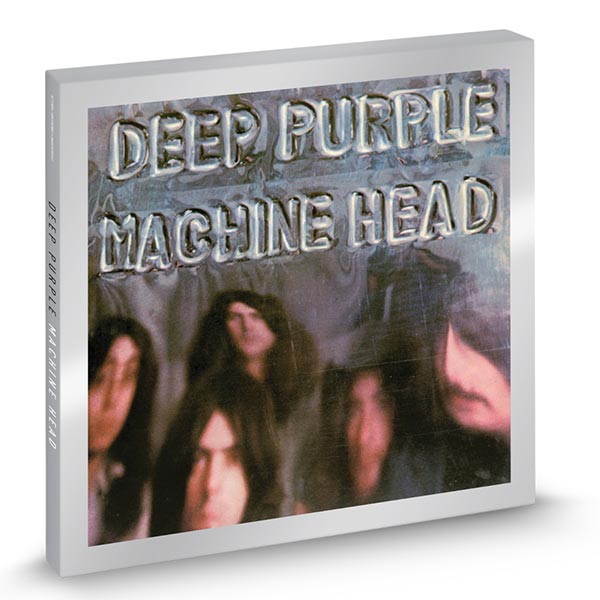
By Sean Hannam
18